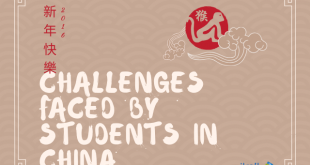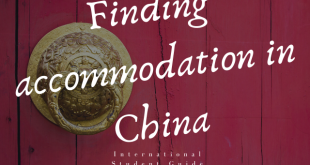
Customs and traditions in China are an experience not to miss. Being one of the largest countries in the world, it goes to show you something. The country has a huge cultural diversity. Each region of China has its own customs and tradition.
During your trip to China, you’d discover many things, and you’d open up to many customs and traditions, and in this article, we’d be covering China’s customs and traditions for you to learn while adapting to the Chinese society.
Table of Contents
The Customs and traditions in China
Food and Eating
One of the important characteristics of the Chinese people and their culture is eating. This is considered a cultural heritage that is passed on through generations. The Chinese people, while eating, pass in dishes on a table to be shared between the attendees.
The Chinese are very famous for the tools they use to eat, especially sticks. Many foreigners find it difficult to use them to eat, but they prefer it because using sticks makes you eat slowly, thus more healthy.
It’s normal for the Chinese to make sounds when chewing and eating, and it doesn’t cause any embarrassment. Chinese food varies from region to region and each one has its own characteristics. Rice is one of the most famous ingredients in Chinese cuisine, basically, a major component that must be present at any Chinese table.
Drinking and Beverages
Green tea is widely consumed by Chinese people. Known as the most popular drink in all seasons.
A quite frequently asked question in restaurants in China is: “Any hot water?” which may sound unusual for non-Chinese people. In fact, it is part of the customs and traditions in China to drink hot water. Many even prefer to have burning hot water, because they believe that hot water is efficient to cure ailments and prevent disease.
Dress Code
The style of dress in China is different in social classes across different eras. Every region has a distinctive way of dress.
A Chinese dress is now one of the popular traditional clothing in the world and is worn by people worldwide.
Feasts and family traditions in China
The Chinese celebrate several occasions and have their rites during each feast, including :
- New Year’s Day as is common in most countries of the world.
- Lunar New Year’s Day (Spring Festival) and its rites are accompanied by a three-day holiday in China.
- China Youth Festival is on the fourth of May every year.
- Chinese People’s Liberation Army day is at the beginning of August every year.
- Feast of Cheng Feng also called “the feast of serenity and purity”.
There are many other holidays that are celebrated at certain times and have their own rituals and traditions.
The Chinese culture and values
The language
There are seven official dialects in China. However, the majority of people in China speak Mandarin, followed by other dialects. These dialects vary according to each region.
Religions
There are five official religions in China and are Buddhism, Catholicism, Protestantism, Islam, and Taoism.
Other religions remain illegal. Although China is a country that calls for freedom of speech and life, the issue of religion is still a problem.
Ethnicity
It should be noted that China is a unified multinational country, consisting of 56 ethnic groups. The proportion of Chinese Indians represents the largest proportion of the total Chinese population, and the other fifty-five groups make up the rest.
These ethnic groups share a vast territory in China but at the same time, many live in their individual societies. Relationships between different ethnic groups grew over many years.
Etiquette and other traditions unique to China
Greetings
A handshake or a head tilt is a common way to greet others in China. Despite the huge population, the fact remains that most of the population in China is characterized by common characteristics.
Chinese society, in general, is known for its values of respect and appreciation of others. As time is valuable and always used in important matters.
Use both hands when offering and receiving business cards
This is a Chinese courtesy and the way they show respect to others: they hand business cards and name cards with both hands. And this is especially important when younger people or from a lower rank offer cards to an older person or someone of a superior rank.
Giving gifts
This is another common tradition in China: the giving of present. When visiting a Chinese friend, you need to be careful not to give an odd number of presents, as it is considered unlucky. Moreover, you should avoid giving presents in number of 4, presents in black-and-white color. They symbolize death in China. Same with clocks, which also represent death and funerals.
Conclusion
The development that China has achieved in various fields is all thanks to the people of China. As one of the most ancient civilizations in the world, there are many cultural traditions and customs that you can only find in China. And during your study trip to China, you may find many strange customs, however, you’d not face a problem.
Despite the difference in customs and traditions, the Chinese people are known for their acceptance of others. Despite their religious and ethnic differences.
Finally, don’t forget to check out the most affordable universities in China and the reasons why you should study in China




 Aljawaz Your guide to study abroad
Aljawaz Your guide to study abroad
















